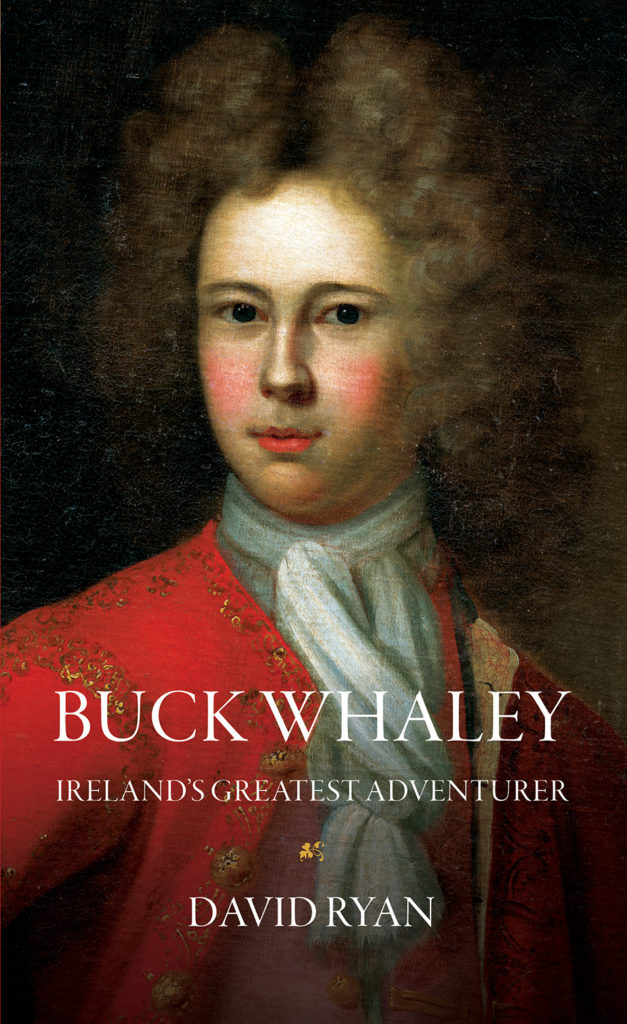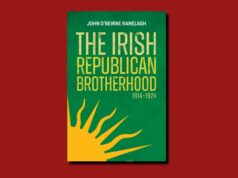David Ryan reveals the remarkable story of Thomas ‘Buck’ Whaley’s adventures in Ottoman Turkey in 1788

Early in December 1788 an Anglo-Irish gentleman named Thomas ‘Buck’ Whaley found himself in the city of Smyrna on Turkey’s west coast. He and his travelling companion, Captain Hugh Moore, were on their way to Jerusalem, hoping to win a wager Whaley had laid that he would travel there and back within a year. There was a lot of money at stake—£15,000, equivalent to several million euro today—and thus far the journey had been anything but straightforward. In 1788 foreign travel was a protracted and uncomfortable business, involving difficult overland trips and hazardous sea voyages. En route to Smyrna, Whaley had survived a dangerous journey across the Mediterranean, during which his ship had been pursued by a hostile Moroccan fleet and nearly destroyed by a hurricane. A sensible individual might have been inclined to press on to Jerusalem as quickly as possible. Not the volatile Whaley. Instead, he proposed an overland detour to Constantinople (Istanbul), the capital of the Ottoman Empire.
For Europeans, Constantinople represented all the allure and exoticism of the Near East and Whaley had long wanted to visit it. To get there he would have to undertake a tough overland trek through a desolate region of north-west Turkey that even today is well off the beaten path for tourists. Having hired a janissary (Ottoman guard) to provide security, Whaley and Moore set out from Smyrna on the afternoon of 4 December. During their first two days on the road they were blessed with favourable weather and their mood was optimistic. But it did not take long for the weather, and the mood, to deteriorate. Early in the morning of 7 December the party left the town of Manisa, heading for Akhisar some 32 miles to the north-east. It would take them another five days to get to the Marmara coast: a tough, uncomfortable and tedious journey. On the road to Akhisar it began to rain heavily and by the time they reached their destination they were soaked to the skin. On 9 December they endured an eight-hour ride in the course of which ‘it poured the whole day without intermission, all our coverings were insufficient to exclude the rain’. The next day their progress was slowed by deep furrows of mud in the road and swollen rivers that were difficult to ford. At one point the baggage horses ended up in a morass and only with difficulty did they recover their supplies. Meanwhile, the quality of the accommodation varied from bad to worse. As expected, the options were severely limited, and every time they reached their halting place for the night, they had to undertake a tiresome search for lodgings. At Akhisar they lodged in ‘a very bad room which indeed was little better than a ruin, and admitted cold and wet on every side’. The following night, in Gelembe, they lay down in a mud-walled room while dogs roamed the streets outside, howling incessantly. The night after that they stayed in ‘a wretched hovel’ at the side of the road.
Bad weather and bad lodgings were not the only things to trouble them. There was a constant possibility of attack by hostile parties on the road but, as it turned out, the most dangerous antagonist came from within their own party. On 11 December, as they were following the banks of the Maccatitch (Simav) River, Moore found fault with the janissary for allowing the baggage horses to go ahead of the party. The Turkish guard reacted fiercely and, according to Moore, ‘got into a violent passion, and soon after, a miserable horse that carried our bedding having strayed a little out of the line, he ran at him with his drawn sabre, and attack[ed] him with it behind, till he forced him down the banks of a river, along the margin of which our road lay … he rolled over into the water, and was rapidly carried down by the current for above half a mile’. Infuriated, Moore confronted the janissary, who threatened to abandon the party and return to Smyrna. Whaley, fearing he would collude with the local peasants to rob and murder them, ‘used every means I could devise to pacify the scoundrel … his rage exhausted itself, and … he at last consented to accompany us’.
After this uncomfortable incident the companions endured a long ride through a stretch of deep and wet country. Thankfully, the next day they reached Scala on the Sea of Marmara and were finally able to take ship for Constantinople. The journey from Smyrna had been rain-soaked and uncomfortable and their food supplies had run dangerously low. As an experienced soldier, Moore was used to hardship, but Whaley had led a more pampered life and in enduring the privations of the road he discovered things about himself. ‘When removed from all friends and relations, in a savage and remote country, your personal influence and property lose their weight and consequence and you are left to shift for yourself, with those advantages which nature and not any fortuitous circumstances may have bestowed on you’.
Whaley eventually made it to Jerusalem and returned to a hero’s welcome in Dublin in July 1789, having won his £15,000 wager. He became an overnight celebrity, but in the years that followed he suffered catastrophic gambling losses that almost destroyed him. By the time of his death in 1800, he had squandered an astronomical £400,000 (around €100 million in today’s money) ‘without ever purchasing or acquiring contentment or one hour’s true happiness’. And yet his journey to Jerusalem must stand as one of the greatest adventures undertaken by an Irishman: a riotous, dramatic and scarcely believable experience that shows what long-distance travel was once like, long before the age of online booking.
Buck Whaley: Ireland’s greatest adventurer. David Ryan. Merrion Press; 268pp; €16.95 pb; 21cm; 9781785372292.

David Ryan was born in Galway and holds an MA degree in history from NUI Galway. His first book, Blasphemers and Blackguards: The Irish Hellfire Clubs, was published by Merrion Press in 2012. David currently works as a television producer and scriptwriter, specialising in history and archaeology documentaries.











